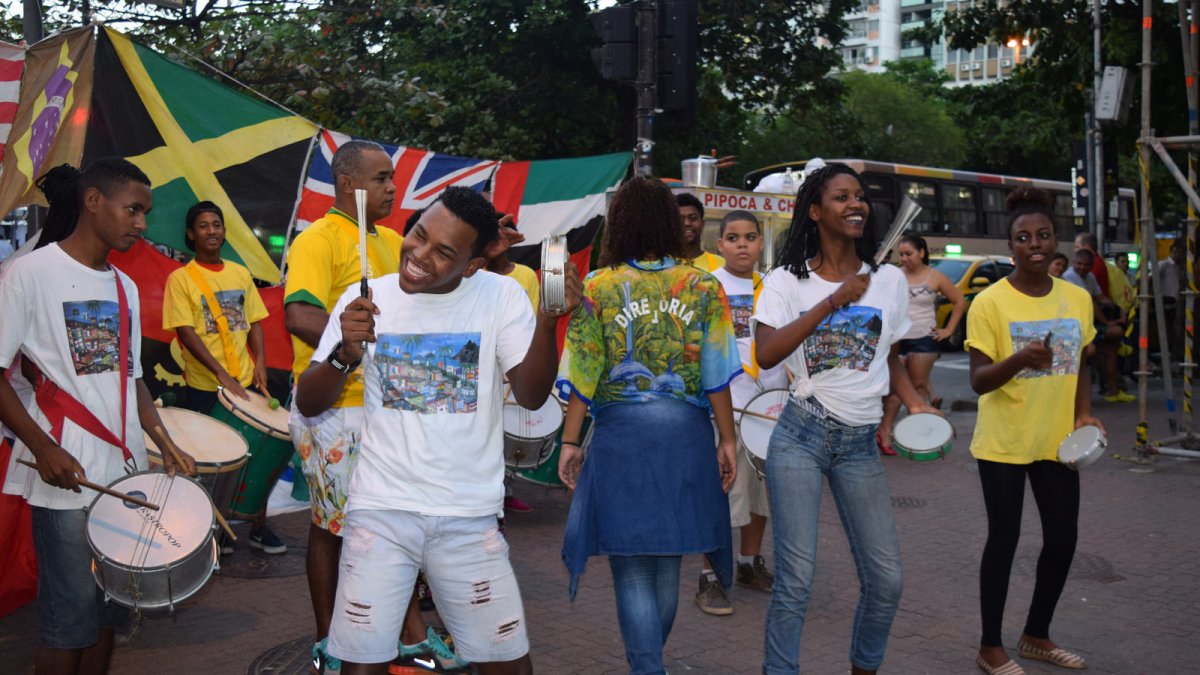‘Catalyst for the transformation’
Carolina students help a struggling community program in Rio de Janeiro develop a robust business model.

Having traveled to Brazil countless times, Joseph Hiatt has always wanted to reach out to the Brazilian people and lend a hand.
This spring, UNC Kenan-Flagler Business School’s STAR Global project gave him that chance. Hiatt and a team of students helped a struggling community program in Rio de Janeiro develop a robust business model.
“The people in Rio de Janeiro are some of the most amazing people in the world and I really wanted to be able to give back to them in a business-type way — a way that I haven’t been able to before,” said Hiatt, a master of business administration student at UNC Kenan-Flagler.
The STAR Global project is one of several ties Carolina has with Brazil, which will be in the spotlight this month during the Olympic Games. Other ties include advising cancer trials, offering undergraduate exchange programs and collaborative research focusing on epidemiology, domestic violence, nutrition and marine sciences.
Through the STAR Global project, Carolina students are also helping Brazilian businesses thrive.
Each year, teams of MBAs and undergraduates from the business school partake in STAR Global, a hands-on learning program where students act as consultants to real companies around the world. Working in small groups, students build strategies for corporations and non-profits to strengthen their organizations.
Throughout the spring semester, Hiatt’s group served as consultants to Brazilian native Adaílton Silva, the founder of a community organization called Patota do Galo.
On the surface, Patota do Galo is a percussion school for the teenagers of Rio. Consisting of nearly 20 participants, the organization teaches the basics of the instruments and also hosts performances for tourists — the organization’s primary income.
But the organization also led an effort to provide a safe activity for the youth living in the slums surrounding Brazil’s capital city. Patota do Galo’s core mission is to be a “catalyst for the transformation of generations by developing people of character.”
“His mission really isn’t to teach percussion,” Hiatt said. “It’s really to give kids an alternative to the violence and the drugs that are rampant in the slums of Rio de Janeiro. His idea was to give them something positive to do and to use that to teach them life skills.”
While Silva had the passion to help the community and the musical training to teach, he lacked a strong business model to keep the program running, spending much of his own money to keep Patota do Galo functioning.
That’s where the group of UNC Kenan-Flagler students were able to help. After meeting Silva in Chapel Hill in January and then traveling to Rio for two weeks in May, the students developed a comprehensive plan to help Patota do Galo become a sustainable organization.
The first step included setting up a business account and teaching Silva how to keep his personal and business accounts separate — removing the burden of paying for company expenses and operating costs out of his own pocket.
Students then established a marketing plan, including a website and a social media presence on Facebook and YouTube to showcase Patota do Galo’s mission and performances.
“Getting to meet these children and to see how talented they actually were and how dedicated they were to it was very moving,” Hiatt said.
While the group of students established the founding principles to turn Patota do Galo into a sustainable company, the ball is now in Silva’s court to use those tools properly, Hiatt said.
And Patota do Galo is off to a good start. The group earned the opportunity to perform during the Olympics in its hometown.
For Hiatt, the STAR Global project provided a chance to not only help the people of Brazil, but also to help develop his business and leadership skills. The hands-on project, he said, was the best way.
“It was an opportunity for me to lead a project and to develop my own leadership skills and my leadership of a small group, which is really one of the main reasons I came to business school,” he said. “Learning leadership skills is really impossible to do from reading a textbook or writing a paper on it. The only way to do it is to practice. It’s like learning to read — somebody can’t tell you how to read, you have to do it over and over again.”




